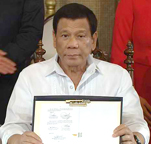- News Front Page
- Uncategorized
- Headline News
- Filipino Calgarian
- Business
- Pinoy Stories
- Community News
- Publisher's Note
- The Main Ingredient
- Views and Opinions
- Maikling Kwento
- Alberta News
- OFW – Month
- Travel News
- Health and Lifestyle
- Pinoy Toons
- Pinoy Spirit
- Entertainment
- The Philippine Lawyer
- Horoscope
- Greetings
- About Us
- Greetings From the Prime Minister
- Greetings from the President of the Philippines
- Greetings from the Premier of Alberta
- Greetings from the Mayor of Calgary
- Advertise With Us
- Disclaimer
- Subscription
Publisher's Note
- Publisher’s Note
 It was 22 years ago when I arrived in Canada and chose Calgary, Alberta to be my home. Leaving my family and friends behind, it was a new adventure for me to be in a new country without knowing anyone. That was the time I looked for a Filipino community paper and never found any, [...]
It was 22 years ago when I arrived in Canada and chose Calgary, Alberta to be my home. Leaving my family and friends behind, it was a new adventure for me to be in a new country without knowing anyone. That was the time I looked for a Filipino community paper and never found any, [...]
Visitors to Pinoytimes
Page added on March 23, 2018
Cities and Scientific Community unite to plan an ambitious new climate change agenda Global Mayors Summit lays the groundwork for science based, action-oriented policies at the city level to combat climate change.
Ahead of today’s start of the CitiesIPCC Cities & Climate Change Science Conference, the “Change for Climate” Global Mayors Summit brought together policymakers, scientists and city networks on Sunday, March 4, to create a critical new dialogue between these vital groups of climate change stakeholders. Though cities and researchers work diligently to address their individual climate concerns and priorities, rarely have they had the mechanism to align their activities. Given the speed of climate change and the necessity of a collective knowledge base, these groups must now work together to advance innovation for quicker and more ambitious local climate action.
The Summit, hosted by the City of Edmonton, Global Covenant of Mayors for Climate & Energy (GCoM) and the Federation of Canadian Municipalities (FCM), convened mayors from Canada, Ecuador, United States and India, key members from the science community and the world’s major city networks C40, ICLEI and UCLG to discuss the critical role cities play in addressing climate change. The Summit initiated a new platform that will raise the bar on climate action in cities worldwide and serve as a catalyst for further city and climate focused dialogues between city practitioners and scientists at events.
“We clearly heard that cities are willing to commit to a new kind of partnership with the scientific community – a research and innovation agenda that will drive our investment decisions and the policy changes necessary to affect a real response to climate risk,” said Edmonton Mayor Don Iveson. “When cities and science work closely together, powerful change is possible.”
These important dialogues will continue throughout 2018 at other major cities and climate events. The process will also contribute to the 2018 Talanoa Dialogues under the Paris Agreement in which cities and regions announced their commitment to advance national climate plans through effective multilevel governance.
“This is a historic week not just for Edmonton but for the world,” explained Pittsburgh Mayor, William Peduto. “We must make data available at the city level and apply it to drive innovation and technology. Data does not only provide insights on how and why climate change is happening but also has the potential to tell us what can be done about it. Scientists and city decision makers must work closely together to create these new models of governance.”
Cities contain more than half of the world’s population and consume more than two-thirds of the world’s energy. Without the involvement of cities, no true progress can be made in the fight against climate change. The vital two-way flow of information created at the Summit enables cities to shape the climate change research agenda, ensuring that research considers the unique needs of cities and ultimately results in more informed local actions and policies.
“Cities are the places where climate research gets translated into climate action, strategies and policies,” said William Solecki, Professor and Founding Director, Emeritus, CUNY Institute for Sustainable Cities. “The scientific community welcomes this opportunity for a closer dialogue between cities and researchers to better inform our research agenda. The more we work together, the smarter and more targeted the knowledge we generate will be.”
Conversation focused on identifying the most urgent knowledge gaps that cities need to bridge to accelerate local climate action and exploring strategies to address them in partnership with the research community. The emphasis of the discussion was on governance, finance, adaptation and resilience, as well as the connection of climate research to quality of life and economic prosperity in cities.
“The cities that will see the most successful climate action will be those that place an emphasis on science- and data-based management approaches. But this can only be done if the data that underpin climate strategies are relevant, coherent and applicable at the city level,” said Amanda Eichel, Executive Director of GCoM. “We’re honored to be a part of this joint effort with our partners, global cities and the scientific community to rethink what is needed to support cities-focused climate research and how it can be made relevant to support ambitious climate action.”
The importance of sound research and city data played a major role in the discussion. Data insights are increasingly informing cities’ climate mitigation and adaptation strategies, and it’s vital that local decision makers and researchers have opportunities to continue engaging each other to further refine and advance their joint goals.
For more information:
Federation of Canadian Municipalities: https://fcm.ca/
Global Covenant of Mayors for Climate & Energy: www.globalcovenantofmayors.org
RELATED STORIES
LATEST HEADLINES
- ISKWELAHANG PILIPINO (IP) RONDALLA OF BOSTON WINS THE HEARTS OF CALGARIANS
- Pinay doctor joins Medicus Family Clinic and Pharmacy
- Multicultural Ethnic Media round table with Minister of Finance Joe Ceci together with Minister of Social Services Irfan Sabir
- Trans Mountain Pipeline keeps Canada working
- Facilitating travel to Canada while keeping Canadians safe
COMMUNITY NEWS
 A new way forward for some immigration application processing times
A new way forward for some immigration application processing times Calgary Stampede 2018 Poster
Calgary Stampede 2018 Poster Alberta celebrates first Philippine Heritage Month
Alberta celebrates first Philippine Heritage Month UPAAA Welcomes New Philippine Consul General
UPAAA Welcomes New Philippine Consul GeneralPINOY STORIES
 Duterte signs National ID System Act
Duterte signs National ID System Act- Holy Week practices in the Philippines
PINOY SPIRIT
HAVE YOUR SAY
Lorem ipsum dolor sit amet, consectetur adipiscing elit, dolor sit ipsum.PROMOTIONAL BLOCK
Lorem ipsum dolor sit amet, consectetur adipiscing elit, dolor sit ipsum.TRAVEL NEWS
PINOY TOONS
Tags
Archives

















